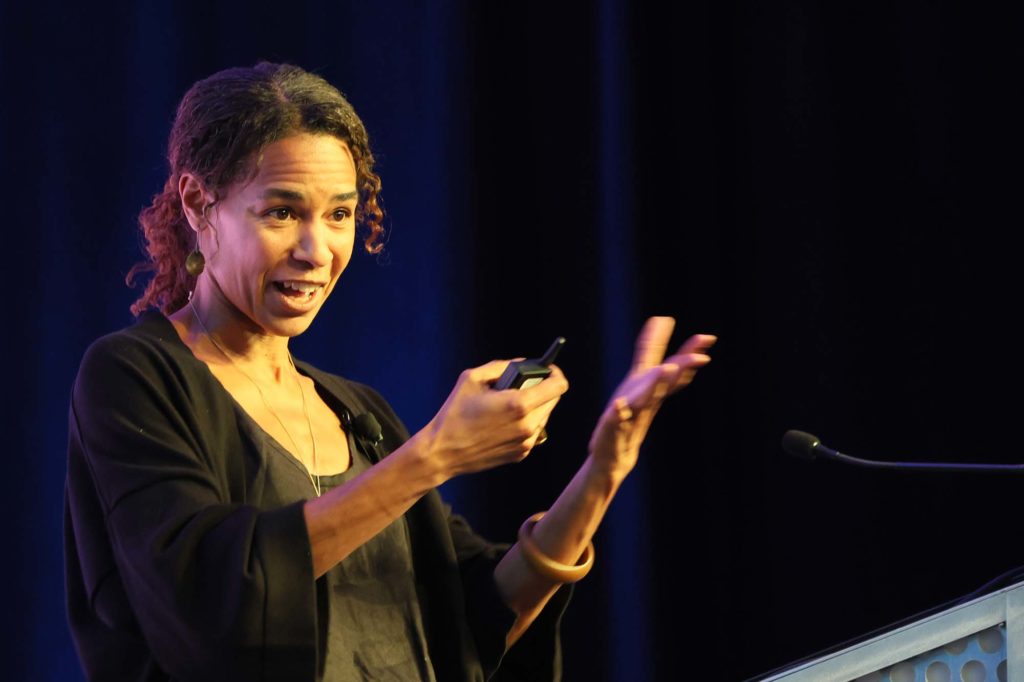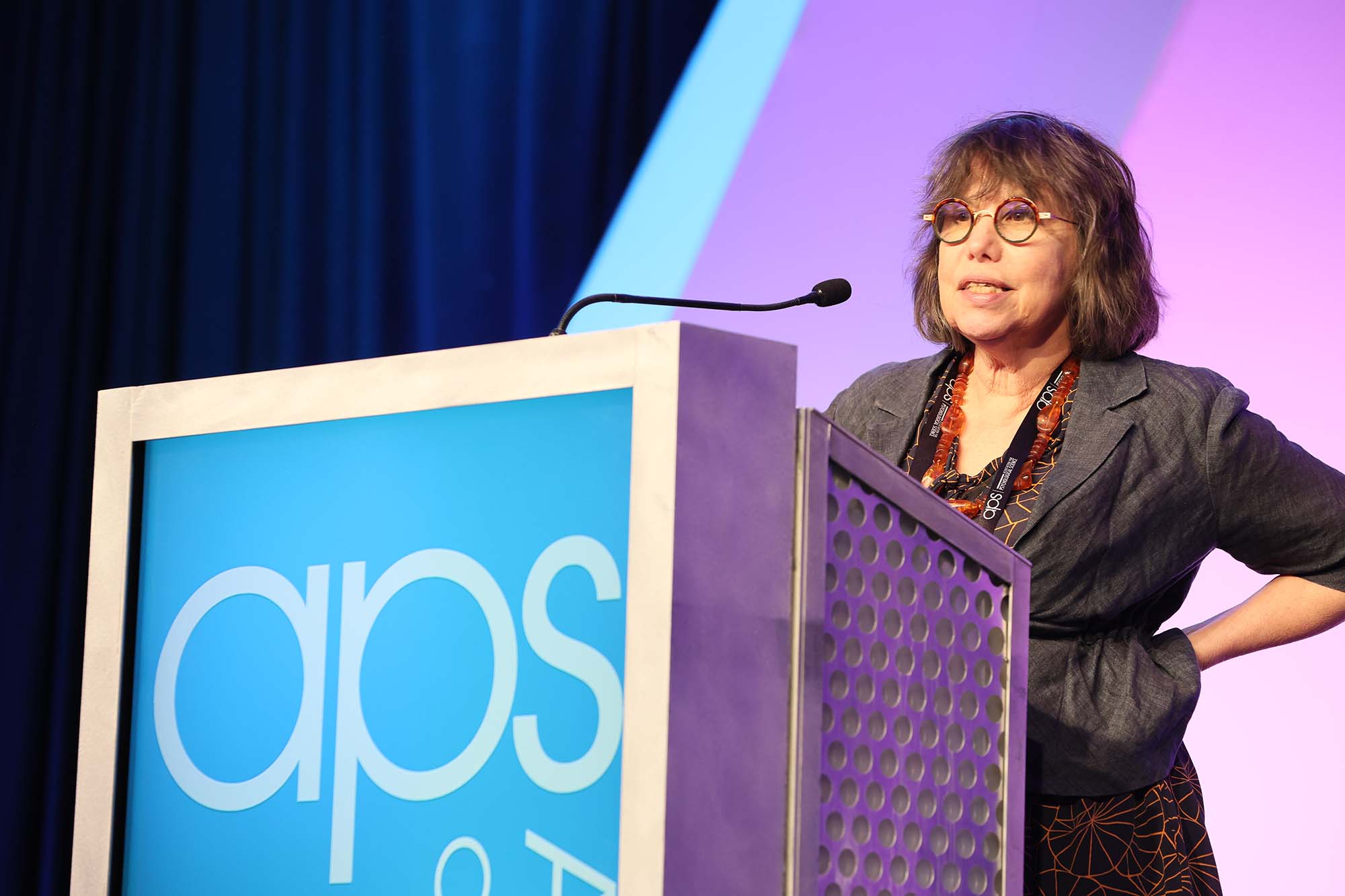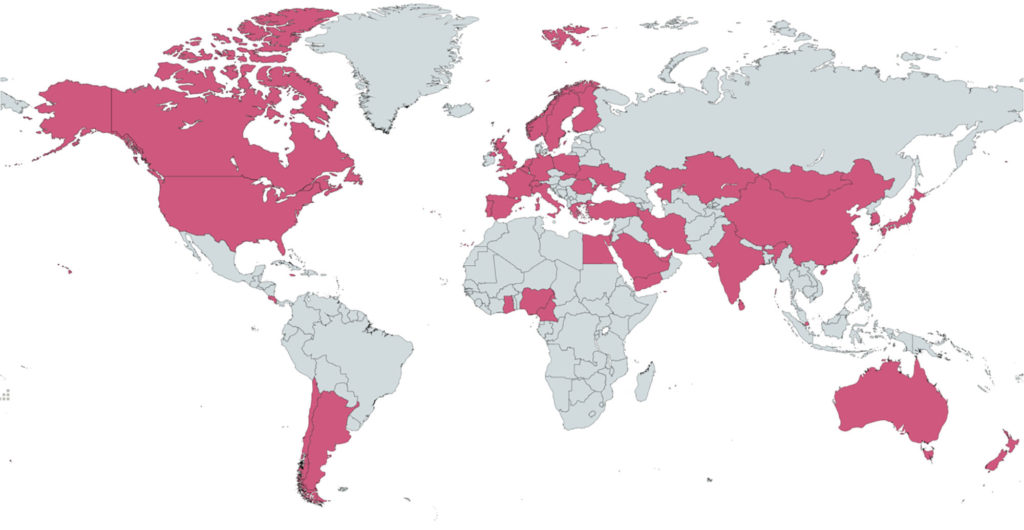Peak Science: At 35, the APS Annual Convention Hits Its Stride

Above: Keynote speaker Catherine Alexandra Hartley (New York University) presented on the causes and consequences of exploration across lifespan development. “Exploration is critical for exploring our environment.”
In a long career marked by breakthrough research on human life history and development, APS President Alison Gopnik (University of California, Berkeley) has studied people at every stage of their lives, from the tiniest babies to the frailest elders. It was only in welcoming attendees to the 2023 APS Annual Convention on May 25 that she realized that APS itself, now 35 years old, has reached “the peak adulthood point”—an age at which people tend to be wildly busy, juggling multiple responsibilities, and actively planning the future.

APS’s 35th annual convention, underway through May 28 in Washington, D.C., is the culmination of a particularly busy time for APS and for Gopnik, whose one-year term as APS President ends June 1. For instance, the association is rolling out its five-year strategic plan, the development of which essentially “identified things implicit to what APS has been all along,” Gopnik said, such as its commitment to a global science and advancing the principles and methods of psychological science.”
Other accomplishments have included several influential webinars discussions hosted by the APS Global Collaboration on COVID-19, an integrative science convention in Brussels, continuing to publish the field’s most prestigious journals, and, of course, planning the current convention, which has brought more than 2,200 psychological scientists across all career stages from at least 40 countries to the nation’s capital, including Australia and New Zealand, Cameroon and Ghana, and Mongolia and Yemen.
“We are very busy 35-year-olds,” Gopnik said. “I think we’re going to have an exceptionally good convention.”

Gopnik spoke at the official kickoff—the opening ceremony and keynote address, which followed pre-conference workshops on research methods and techniques and the APS-STP Teaching Institute, cosponsored by the Society for the Teaching of Psychology. APS CEO Robert Gropp welcomed attendees, and then Gopnik honored APS Founding Executive Director Alan G. Kraut with a special proclamation for his contributions to APS and psychological science more broadly.
For the keynote itself, Catherine Alexandra Hartley (New York University) delivered a fascinating talk examining the causes and consequences of exploration across the lifespan. “From the earliest stages of life, we are avid explorers,” Hartley said. Her interdisciplinary research, which draws from neuroscience, behavioral studies, developmental research, and other disciplines, uses novel research methods in the lab and real-world environments alike, including geolocation tracking, to show that “exploration is critical for exploring the environment” and can result in an “upward spiral” of novel activities, thoughts, and relationships associated with positive emotions.
Related: Catherine Alexandra Hartley on Under the Cortex: Exploration and Risk Taking: Hallmarks of Adolescence That Increase Well-Being
The 2023 APS Annual Convention continues Friday, Saturday, and Sunday with dozens more sessions, including invited plenaries titled Aging Minds: Challenges and Opportunities and The Effects of Early Adversity on the Mind and Brain. For real-time updates, follow #aps23dc on Twitter.
Feedback? Email apsobserver@psychologicalscience.org or login to comment. Interested in writing for us? Read our contributor guidelines.





APS regularly opens certain online articles for discussion on our website. Effective February 2021, you must be a logged-in APS member to post comments. By posting a comment, you agree to our Community Guidelines and the display of your profile information, including your name and affiliation. Any opinions, findings, conclusions, or recommendations present in article comments are those of the writers and do not necessarily reflect the views of APS or the article’s author. For more information, please see our Community Guidelines.
Please login with your APS account to comment.